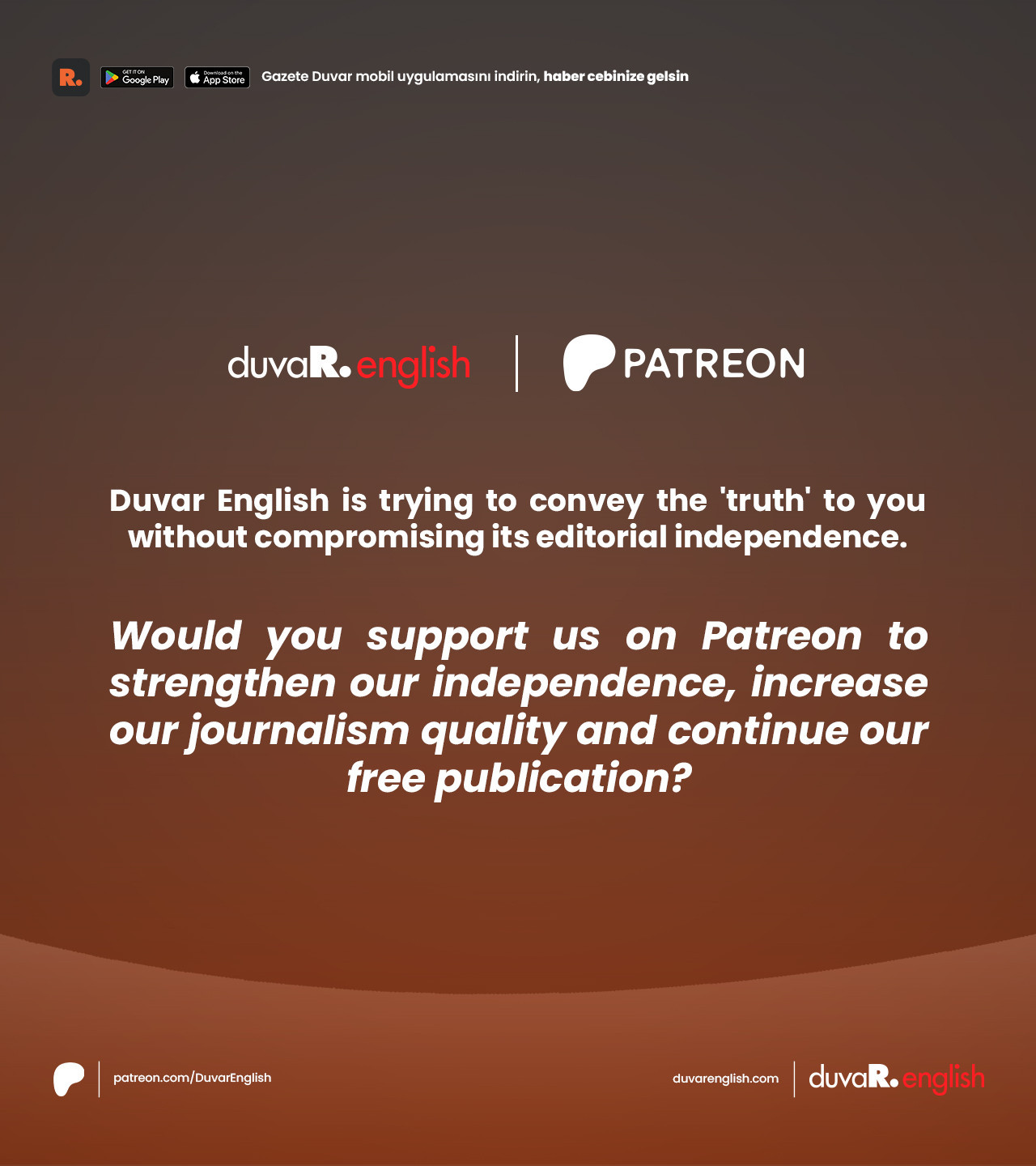There is no room for women in Turkish fisheries sector: Association
Women are almost non-existent in the fishing industry in Turkey. They work without professional security while facing various dangers at sea, according to the Women in Fisheries Society.
Özgür Duygu Durgun / DUVAR
According to the Turkish Statistical Institute’s (TÜİK) 2019 stats, the total number of people working in the fisheries and aquaculture sector in the country is 35,937. This figure reaches 250,000 with the subsidiary branches and unregistered employment. However, it is unclear how many women work in the sector.
And yet, there is very intensive women labor in many areas from cleaning nets in small fisheries to fishing, and especially in the supply chain.
The burden of being a woman in the fisheries sector is heavy as the most important problem of them is informality.
Trying to survive with intensive labor and low economic income, women fishers usually work on boats owned by their husbands. Fisheries Law No. 1380 allows for the unlicensed employment of helpers between the ages of 16 and 18 on fishing boats, provided that they do not exceed 20 percent of the total number of employees. If fisher families have daughters working on the boats, they also work informally.
Women fishers work in low positions, for the lowest wages, often informally and temporarily, as they are unable to take part in decision-making mechanisms because they are not organized or represented in cooperatives.
The Women in Fisheries Society, founded by a group of expert women from different professions such as academics, fishers, biologists, and aquaculture, investigated the social and economic problems of women fishers.
The association has published a detailed assessment report on the Fisheries and Aquaculture Legislation. The report addresses the problems of women fishers and offers policy recommendations.
The report was prepared within the scope of the "Strong Civil Space for Gender Equality" project of the United Nations Women and with the financial support of the European Union.
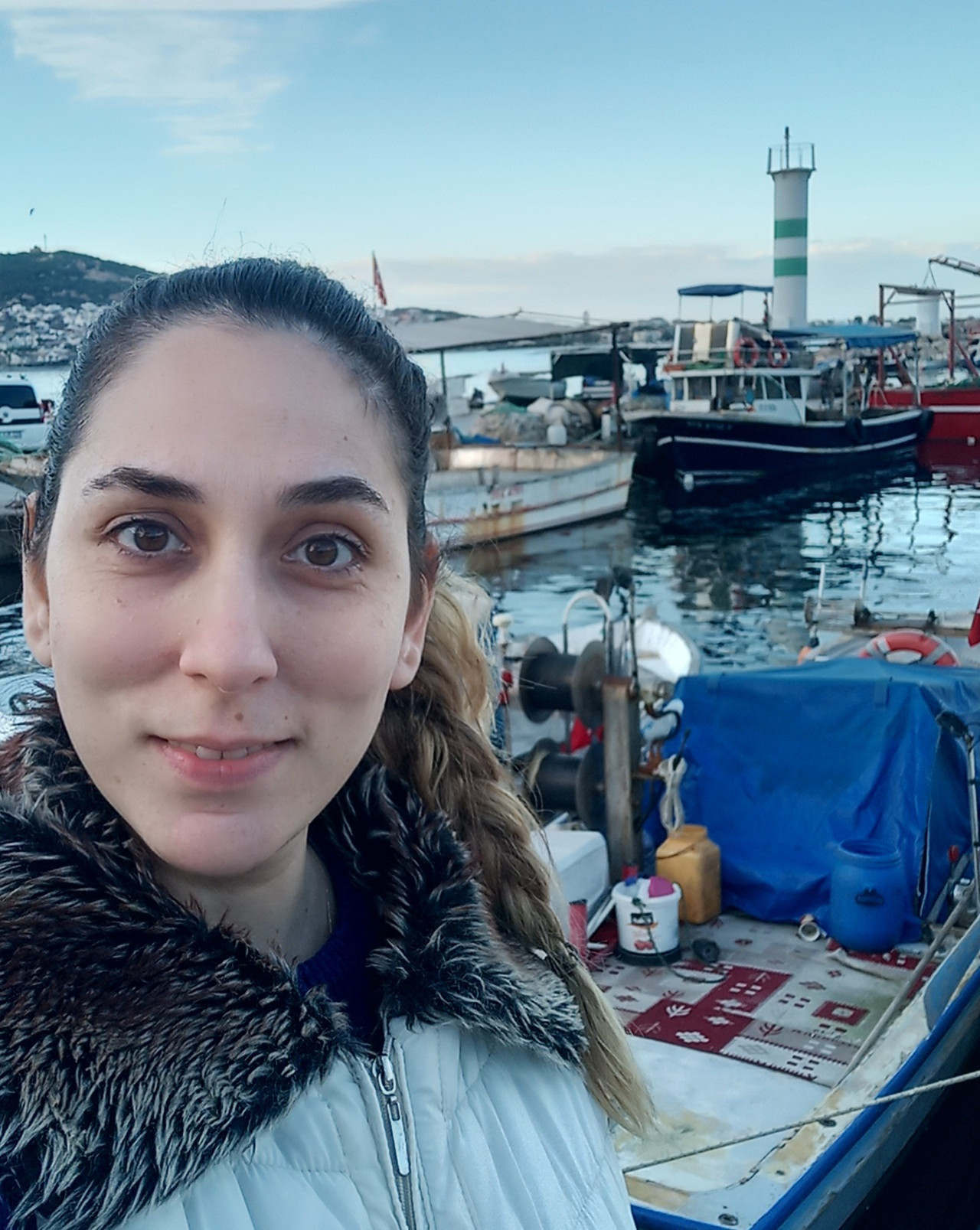
Melike Gündüz, the Women in Fisheries Society’s deputy head, stated, “One of the main issues we are concerned about is the decrease in biodiversity, the deterioration of ecological balance, and the social and economic problems of all women working in the fisheries sectors, especially women fishers. We aim to advocate for the achievement and development of gender equality and to contribute to sustainable use of the sector.”
Gündüz said the association’s board and all decision-makers in the organizational chart were women. “We carry out our projects and initiatives from a woman's perspective. Our work is based on volunteerism. To change the established gender role perception in the Turkish fisheries sector, we work together with women fishers to increase the visibility of women in the workforce through education and advocacy, and to encourage women to be changemakers in their communities and their own lives.”
Ayşe Süzme, who worked as a fisher in the village of Bademli in İzmir’s Dikili district for nearly 30 years, is one of those who personally experienced the difficulties women face in the fisheries sector. 69-year-old Süzme lifted nets, cleaned nets, and stayed overnight on the boat. While doing all this, she also raised children. Like many women in this line of work, Süzme started fishing on her husband's boat.
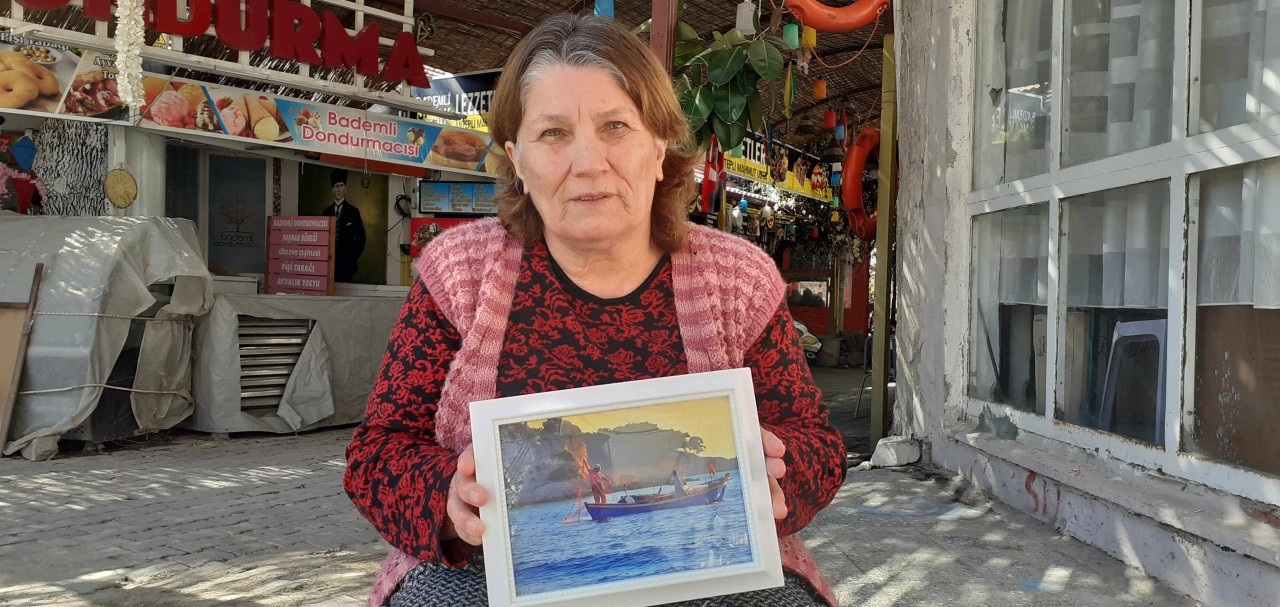
Süzme quit fishing reluctantly due to health problems. The only document Süzme has from her time of fishing is a photograph of her casting nets on the boat. According to her, fishing no longer brings economic gain because of “unconscious” fishing and the increasing sea pollution in the Aegean.
“I actually love working a lot. I also loved fishing. We had a 6-meter boat. We used to work day and night. I have two sons, I lost one of them due to illness. My son lived bedridden for 4 years. When he died, I consoled myself in the sea. Sometimes baby fish would get caught in the nets. I couldn't stand them and release into the sea. My husband would get angry with me, he would say 'how are we going to earn money'. I used to catch all kinds of fish, from bonito to sea bream, and squid... Now you can't find a single one in the sea. Those who don't know are doing this job. You throw a net into the sea, and you find it filled with plastic bags. You can't even pay for the gas you put in the boat anymore,” she said.
Sea pollution is another reason for the end of fishing. We can mention a whole set of problems ranging from the rapid construction of coasts, the destruction of coastal marine life, overfishing, illegal fishing, and as a natural consequence, the decrease in marine biodiversity, to low catches and insufficient economic returns. All these problems cause a significant number of women fishers to move away from the profession.
Melike Gündüz said women fishers are unable to take part in management and decision-making mechanisms due to gender barriers and that they work in the lowest positions with low wages and/or informal, temporary and/or part-time work. She added that women fight for accessing resources that are vital for economic recovery, such as capital, credit or educational opportunities.
“As the Women in Fisheries Society, it is indispensable for us to provide all the support we can to women working in the sector on gender and equal opportunities for 'blue sustainability.' In addition, in order to protect marine and coastal ecosystems, we also carry out various activities such as advocacy, education and communication activities, as well as conducting research and producing knowledge in the fields of nature conservation and gender,” she added.
(English version by Alperen Şen)

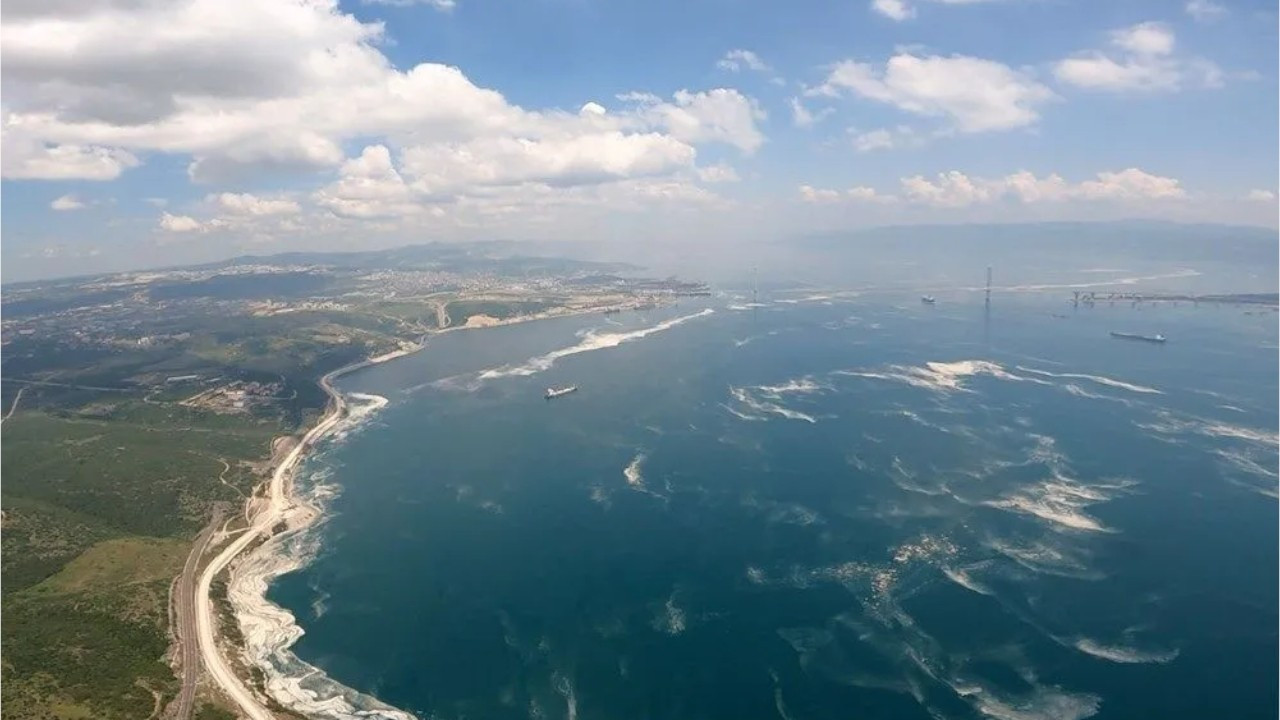 Experts emphasize risks of oil exploration in Marmara Sea as company obtains licenseEnvironment
Experts emphasize risks of oil exploration in Marmara Sea as company obtains licenseEnvironment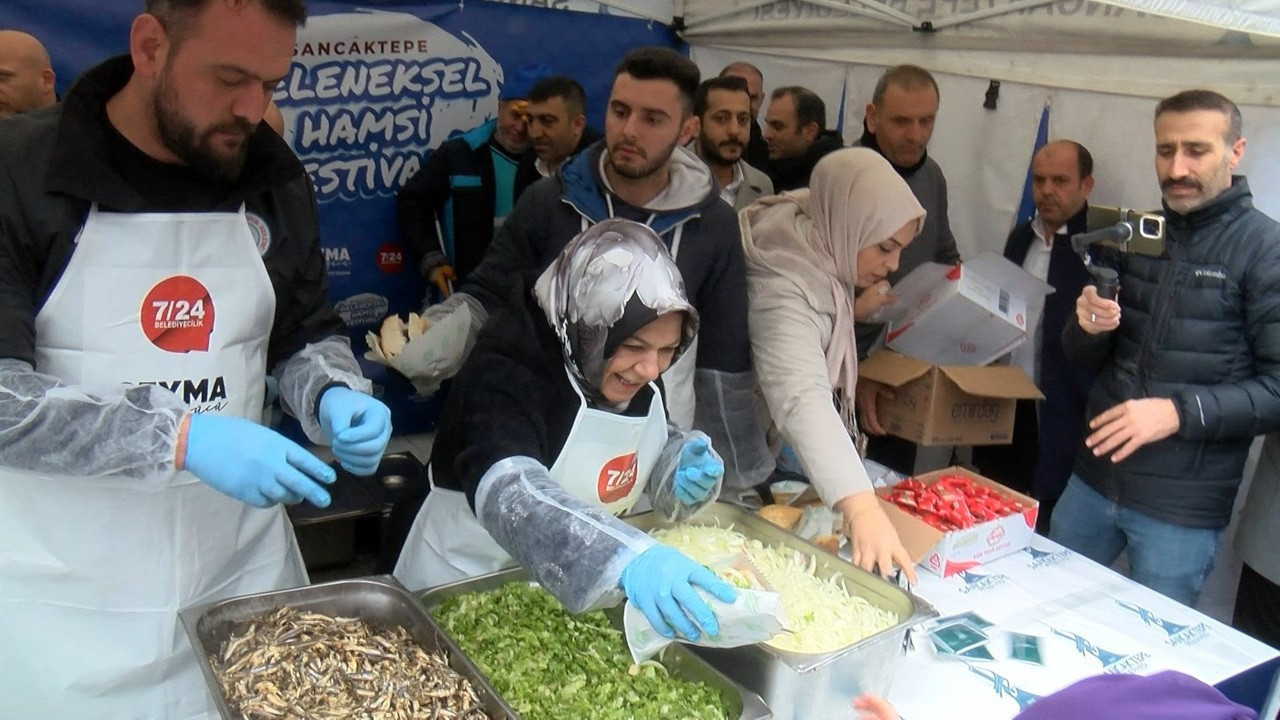 Five tons of fish consumed in anchovy festival in IstanbulDomestic
Five tons of fish consumed in anchovy festival in IstanbulDomestic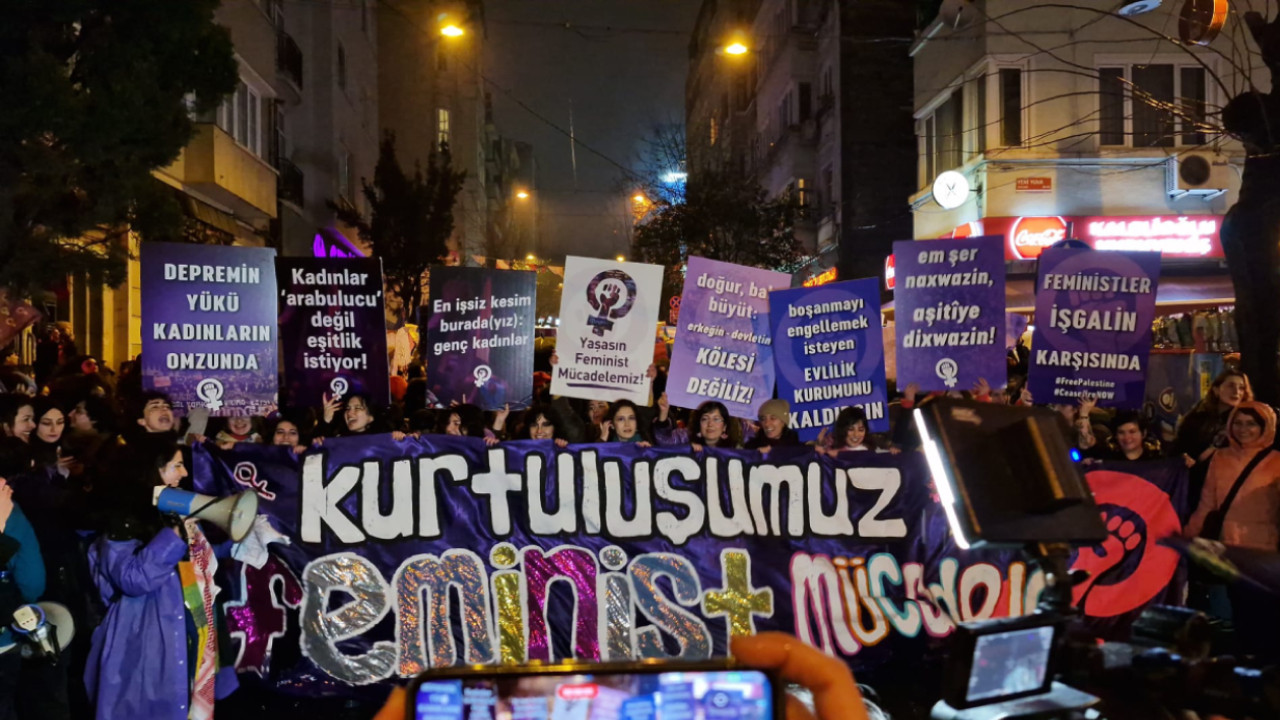 ‘Woman has no name’ on Turkish local election ballotsWomen
‘Woman has no name’ on Turkish local election ballotsWomen